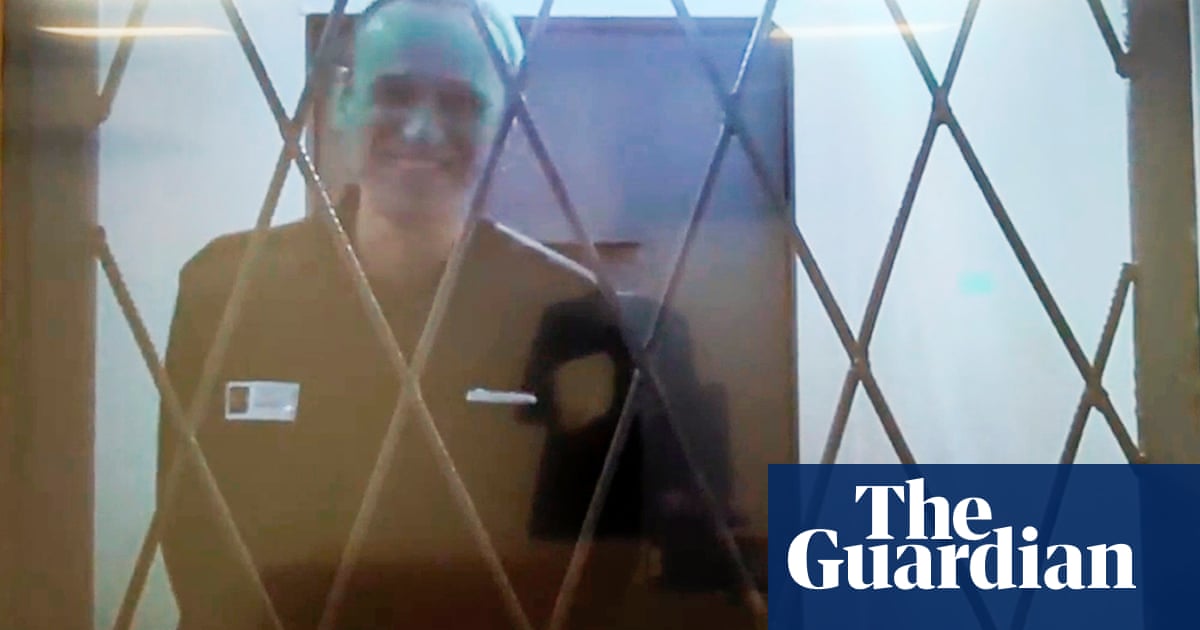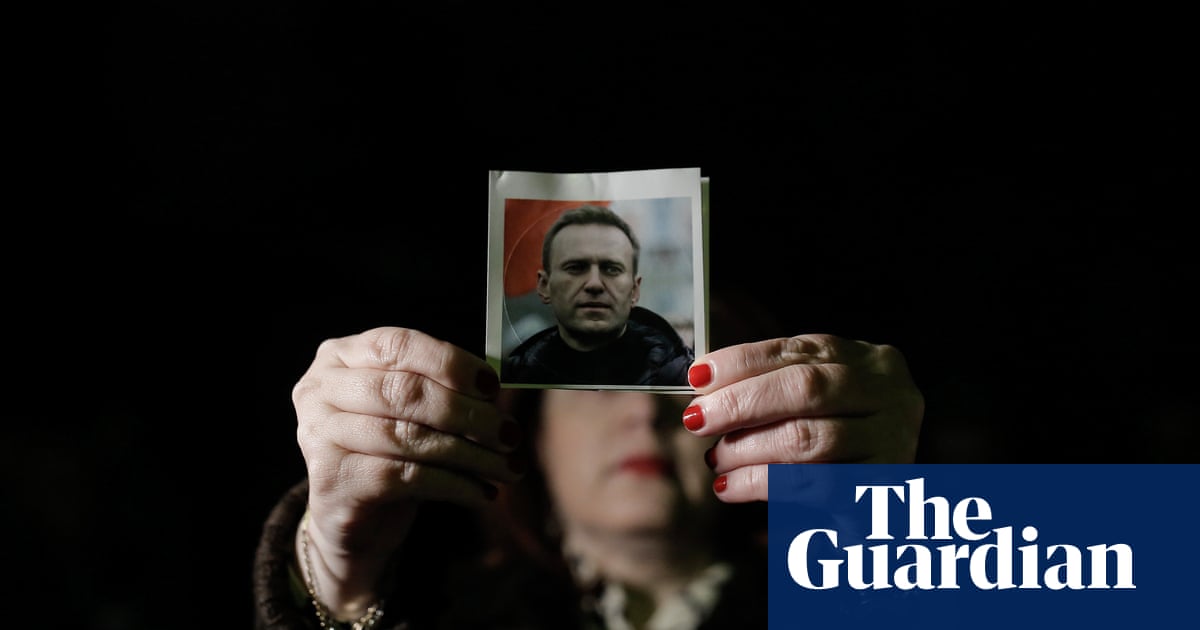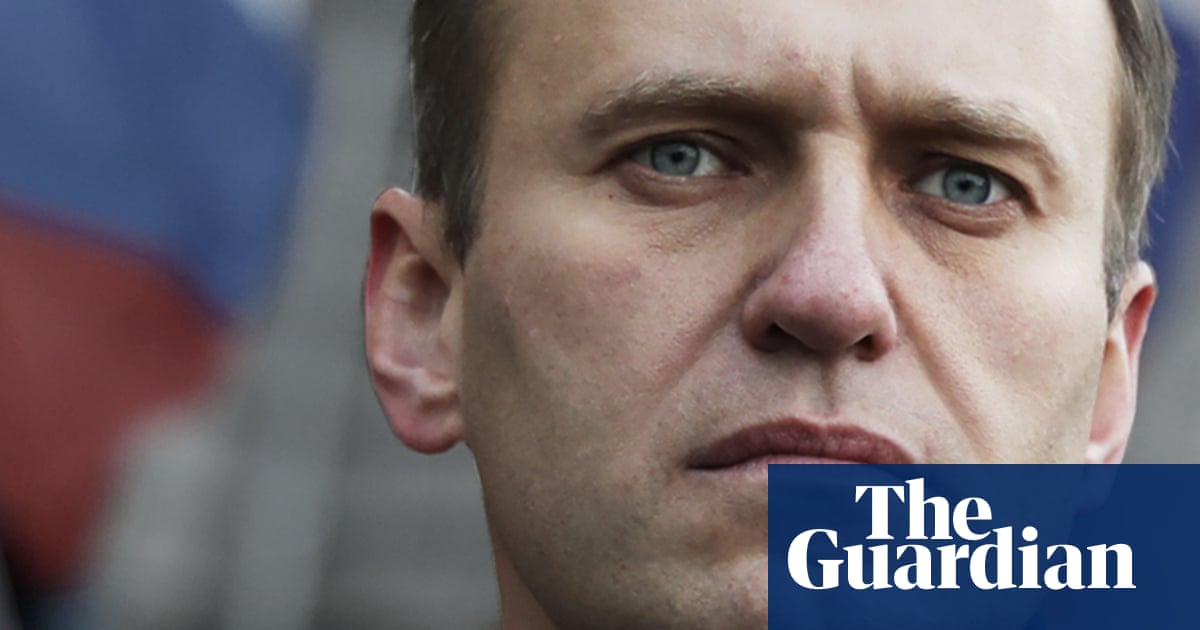
In his last court hearing on Thursday, Alexei Navalny looked frail. Appearing via video link, close-shaven and face gaunt, his deteriorating appearance reflected years in jail that were plagued by allegations of systematic abuse.
But his mind was defiant. Infused with a heavy touch of irony and humour, a distinctive hallmark of the opposition leader, Navalny joked with journalists and scolded the authorities.
He ironically asked the judge for part of his “enormous salary”. “Because I am running out of money thanks to your decisions,” Navalny said, referring to numerous fines imposed on him.
The next day, Russian authorities said he had died in a maximum-security prison in the country’s far north. His demise, if confirmed, will be widely seen as the final chapter in what looks like the Kremlin’s systematic effort to silence the most vocal and prominent thorn in the side of the Russian government.
For years, Navalny was harassed, intimidated and jailed as his prominence in Russia grew. In 2017, a doctor told him he had lost 80% of the sight in one eye after suffering a chemical burn when an assailant threw a green liquid in his face. But those attacks looked like child’s play when in 2020 he survived an elaborate FSB plot to poison him with Soviet-era novichok. Navalny soon became unwell after getting on a plane in the Siberian city of Tomsk for a flight back to Moscow.
The change in his condition was sudden and violent. Navalny went to the toilet at the back of the plane. He did not re-emerge, instead collapsing. Video footage shows the crew scurrying towards him. Passengers described grim, animal-like howls of pain. An unauthorised, on the spot decision by the pilot to divert the plane to a nearby city, where he received emergency treatment, appeared to have saved his life.
A long and uncertain road to recovery in Europe followed the poisoning. Step by step Navalny grew stronger. He started to walk and recognise people. German doctors soon confirmed he had been poisoned with a military-grade nerve agent from the novichok family.
Navalny later duped his attackers into admitting to putting poison in underwear in Tomsk. Asked why he survived, the FSB office told Navalny it was probably because his plane had made an emergency landing. If he had continued to Moscow – a journey of another three hours or so – he would probably have died, the officer said. The agent stressed his superiors had got the poison dose right.
But while Navalny survived the first attempt on his life it would mark the start of a grim series of repressions that would eventually lead to his death on Thursday.
Five months after falling victim to the FSB operation, he decided to go home, risking his own freedom to issue a direct challenge to the Kremlin. It was apparent from the start that his return would not be appreciated by the Kremlin.
Navalny’s plane landed at Moscow’s Sheremetyevo airport, diverted from its original destination of Vnukovo airport where hundreds of supporters and media had been waiting. But he was in good spirits. “What bad things can happen to me inside Russia?” he quipped on the plane, telling reporters: “We won’t be able to take off unless you sit down.”
Navalny kissed his wife, Yulia, goodbye as he was arrested upon arrival in Moscow. It would be the last time the two would hold each other. A court soon handed him a three-and-a-half-year prison term, which would be followed by more and more sentences. At the time of his death, Navalny was due to serve a cumulative three decades in prison. It was made clear he would remain in jail as long as Putin remained in power.
In jail, Russia’s most famous opposition leader faced some of the worst excesses of the Russian prison system. He said the Kremlin wanted to break him, as a punishment for staying alive.
His team feared worse.
Navalny went on hunger strike after being denied urgent medical treatment in prison. He said the authorities subjected him to psychological pressure and sleep deprivation, detailing a fellow inmate to wake him every hour on the pretext of making sure he had not escaped.
He halted the hunger strike on the advice of his doctors but his torment continued. Navalny complained of numbness in one leg so severe that he could not put weight on it. Defying personal risks, hundreds of Russian doctors signed open letters asking Putin to “stop abusing” Navalny in jail.
Much of his time in jail would be spent alone, in the notorious punitive isolation cell, or ShIzo, for minor infringements of prison rules or without any explanation at all.
Last April worries grew when Navalny started grappling with severe stomach pain that his allies said could be the result of slow-acting poison. “His situation is critical, we are all very concerned,” his close ally Ruslan Shaveddinov told the Guardian at the time, foreshadowing events to come. “We believe that they are gradually killing him, using slow-acting poison which is applied through food.”
Shaveddinov called the withholding of care a slow-motion assassination attempt by the Russian government.
In December, Navalny disappeared from view, triggering new fears over his wellbeing. His whereabouts was unknown for almost three weeks before his allies located him in a remote penal colony in Russia’s far north.
Navalny’s final destination would be the Kharp high-security prison. Even by Russian standards, the Gulag-era “Polar Wolf” colony was rough.
Surrounded by mountains and tundra, with freezing dark winters making way for short, mosquito-infested summers, Navalny was virtually cut off from the outside world. But he remained positive, making light of his grim ordeal. “I’m still in a good mood, as befits a Santa Claus,” he said, referring to his winter clothing of sheepskin coat and fur hat and the beard he grew during his transportation.
But his allies expressed grave concern about the harsh conditions his already frail body would face. “This prison will be much worse than the one that was before,” warned his spokesperson Kira Yarmysh.
Navalny appeared to persevere. His last letter, passed to his lawyers on Valentine’s Day, was dedicated to Yulia. “Baby, between us there are cities, takeoff lights of airfields, blue snowstorms and thousands of kilometres. But I feel that you are near every second, and I love you with all my strength.”
Navalny prepared a message in case of the worst-case scenario. Shortly before flying out to Moscow in January 2021, he was asked what he would say to the Russian people if he was killed.
“My message for the situation if I am killed is very simple: don’t give up.”












